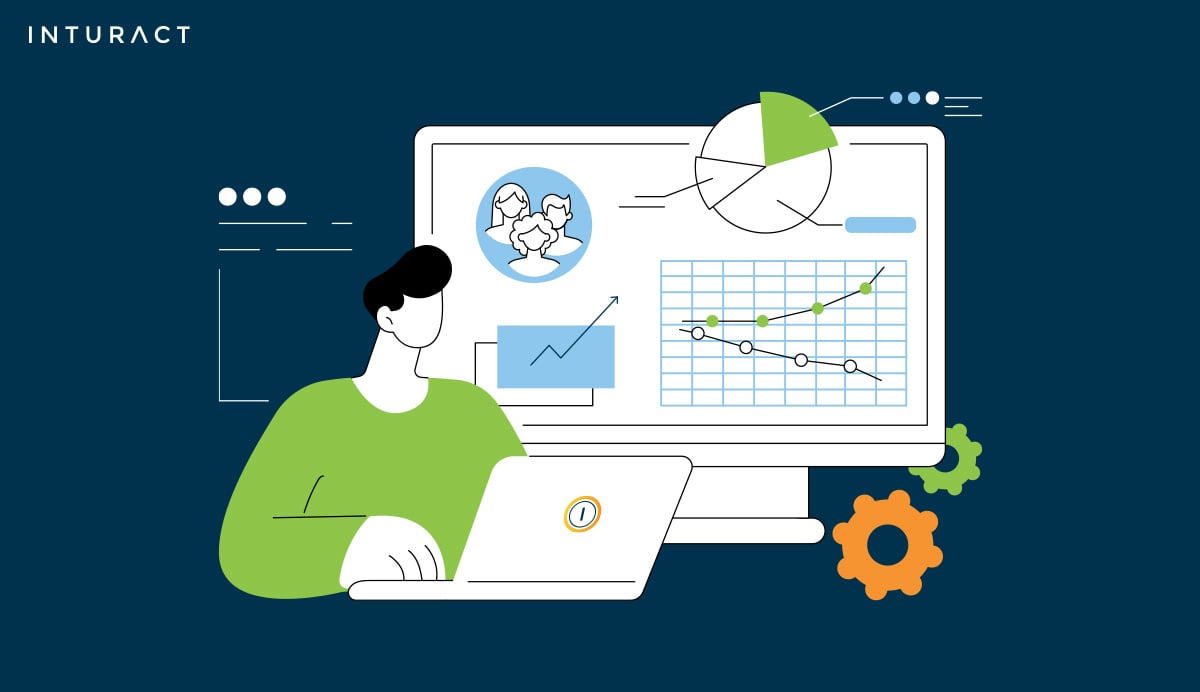Go Beyond Gut Instincts to Know How Data Science Fast Tracks Your SaaS Growth

You’ve probably heard the typical advice for growing a SaaS business: focus on acquisition, nail your product-market fit, and optimize your conversion funnel. While these strategies are undoubtedly important, they often overshadow a critical aspect that can make or break your SaaS success: data science.
Here’s the paradox: many SaaS companies invest heavily in marketing and product development but fail to recognize the untapped potential of their data. They sit on a goldmine of insights that could revolutionize their growth strategies, yet they continue to make decisions based on gut instincts and vanity metrics.
Data science is the key to unlocking exponential growth in your SaaS business. By leveraging the power of data, you can uncover hidden opportunities, make smarter decisions, and create a sustainable competitive advantage.
If you’re a SaaS founder, marketer, or product manager looking to fast-track your company’s growth, this blog post is for you. We’ll dive deep into the world of data science and explore practical ways to leverage its power to supercharge your SaaS growth. From understanding your users’ behavior and preferences to predicting churn and identifying upsell opportunities, data science can provide the insights you need to make informed decisions and stay ahead of the curve.
What advantages does data science-driven growth marketing bring for SaaS?
By leveraging data science techniques like machine learning and predictive analytics, SaaS companies can gain a more granular understanding of their customers’ behavior, preferences, and pain points. This deeper level of customer insight allows for highly targeted and personalized marketing campaigns that resonate with users on a deeper level, fostering stronger connections and increasing engagement.
Moreover, data science can significantly improve customer acquisition efforts. By analyzing data on past conversions, user behavior, and campaign performance, SaaS companies can identify the most effective channels, messaging, and targeting strategies for acquiring new customers. This data-driven approach minimizes trial and error, reduces customer acquisition costs, and enables SaaS businesses to scale their user base more efficiently.
Another key advantage of data science in SaaS growth marketing is the ability to optimize pricing and packaging. Through advanced data analysis, companies can gain insights into user segmentation, willingness to pay, and feature preferences. This information empowers SaaS businesses to create tailored pricing plans and packages that align with the needs and expectations of different customer segments, maximizing revenue potential and reducing churn.
Data science also plays a crucial role in reducing customer churn, which is a critical challenge for SaaS businesses. By leveraging predictive analytics, companies can identify at-risk customers and proactively intervene with targeted retention campaigns. By understanding the factors that contribute to churn, such as low engagement or specific behavioral patterns, SaaS businesses can take data-driven actions to improve customer satisfaction, address pain points, and increase customer lifetime value.
Furthermore, data science enables SaaS companies to make smarter, more informed decisions across various aspects of their growth strategy. By leveraging data-driven insights, businesses can prioritize product development efforts, optimize resource allocation, and identify new growth opportunities. This data-led approach minimizes guesswork and allows SaaS companies to stay agile and responsive to market trends and customer needs.
How do you achieve sustainable growth for your SaaS business with the help of data science?
Find patterns
Imagine you’re a SaaS company that sells project management software. You’ve got a ton of data on your users, like how often they log in, what features they use the most, and even what kind of coffee they drink (okay, maybe not that last one). With data science, you can crunch all those numbers and find patterns that help you create marketing campaigns that hit the bullseye.
For example, let’s say you discover that a lot of your users are tech startups with remote teams. You can use that insight to create content that speaks directly to their pain points, like “5 Ways Our Software Helps Remote Teams Stay Connected” or “How to Manage Projects Across Time Zones.” By tailoring your message to their specific needs, you’re more likely to grab their attention and convert them into paying customers.
Churn prediction and prevention
Another critical application of data science in B2B SaaS growth marketing is churn prediction and prevention. By analyzing customer behavior data, such as product usage patterns, support interactions, and sentiment analysis, data science models can identify customers who are at risk of churning. This early warning system allows companies to proactively reach out to at-risk customers, address their concerns, and offer incentives to stay, ultimately reducing churn rates and improving customer lifetime value.
By analyzing data on customer behavior and engagement, data science can help you identify which customers are at risk of churning (i.e., canceling their subscription). This allows you to proactively reach out to those customers and offer incentives or support to keep them on board.
Data science can help you understand which marketing channels and tactics are driving the most conversions and revenue. By analyzing data from multiple touchpoints (like ads, emails, and website visits), you can create a model that attributes each conversion to the marketing efforts that influenced it. This allows you to optimize your marketing spend and focus on the channels that deliver the best ROI.
Cohort-analysis
By applying data science techniques to cohort-based data, companies can gain even deeper insights into customer behavior and make more accurate predictions about future performance.
An important area where data science helps is — cohort analysis.
Cohorts are when you group customers who signed up or made a purchase during the same time period (e.g., a specific month or quarter). You can track their behavior and performance over time.
Data science can be used to identify patterns and trends within cohorts, such as common characteristics or behaviors that are associated with higher retention rates or greater lifetime value. By segmenting customers into cohorts based on factors like acquisition channels, pricing plans, or feature usage, data science models can uncover the key drivers of success for each cohort. This information can then be used to optimize marketing strategies, product development, and customer support initiatives to better serve the needs of each cohort.
Moreover, data science can help B2B SaaS companies predict the future performance of cohorts based on their early behavior. By analyzing metrics like activation rate, time to first value, and early retention, data science models can forecast the long-term revenue potential of each cohort. This predictive power allows companies to make data-driven decisions about where to invest their resources and how to allocate their marketing budget for maximum ROI.
What do you need to leverage data science for your B2B SaaS business?
To effectively leverage data science for your B2B SaaS business, you need a combination of:
- The right data infrastructure
- Skilled professionals
- A data-driven culture.
A robust data infrastructure includes implementing reliable data collection mechanisms to gather information from various touchpoints, such as your SaaS platform, website, marketing campaigns, and customer interactions. It’s crucial to ensure that your data is accurate, complete, and easily accessible. Investing in data storage solutions, such as data warehouses or cloud-based platforms, will enable you to centralize and manage your data effectively.
Next, you need a team of skilled data professionals to extract insights and drive data-driven decision-making. This includes data scientists, data analysts, and data engineers. Data scientists are responsible for developing and implementing advanced analytics models, such as machine learning algorithms, to uncover patterns, predict outcomes, and optimize processes. Data analysts focus on interpreting data, creating visualizations, and communicating insights to stakeholders. Data engineers, on the other hand, build and maintain the data infrastructure, ensuring that data is properly collected, stored, and processed.
In addition to the technical infrastructure and skilled personnel, fostering a data-driven culture within your organization is essential. This means promoting a mindset that values data-informed decision-making at all levels. Encourage your teams to rely on data insights rather than solely on intuition or assumptions. Provide training and resources to help employees understand how to interpret and leverage data in their respective roles. Regularly communicate the impact and successes of data-driven initiatives to reinforce the importance of data science in driving business growth.
To fully harness the power of data science, it’s also important to have clear objectives and well-defined use cases. Identify the key areas where data science can have the most significant impact on your B2B SaaS business, such as customer acquisition, retention, pricing optimization, or product development. Prioritize initiatives that align with your overall business goals and have the potential to deliver measurable results.
Partner with data science and growth experts

Not all SaaS businesses have the in-house expertise or resources to fully capitalize on the potential of data science.
This is where Inturact, a specialized SaaS growth agency, comes in. Inturact combines deep domain expertise in data science with a keen understanding of the unique challenges that SaaS companies face.
By focusing on the five critical pillars of the customer journey—Acquisition, Activation, Revenue, Referral, and Retention—Inturact helps SaaS businesses identify and solve their most pressing growth challenges. Whether you have a wealth of product user data but lack confidence in interpreting it, or have minimal data capabilities but are aware of issues in specific stages of the customer journey, Inturact has the knowledge and tools to help you succeed. Schedule a call today to learn more about how Inturact can help you.



